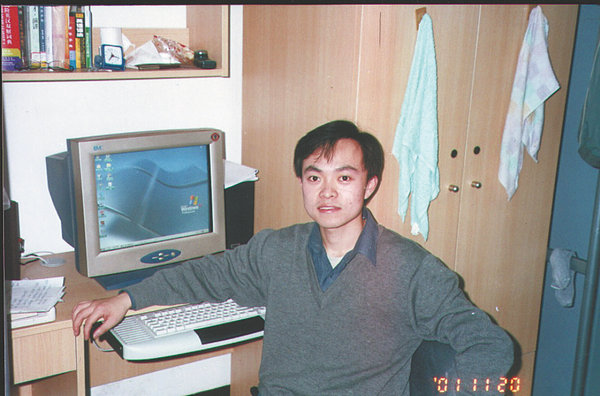A man who never surrenders


Donating to science
Cai refuses to charge patients for using his big data platform.
"According to normal business logic, we provide services and products to customers, and they pay, but I can't do that," he says.
As a man who never surrenders, Cai has decided that even if all efforts prove fruitless, he will not give up. To shoot the last bullet, he has decided to donate his brain and spinal cord for scientific research. He will not die for nothing.
Motivated by his example, nearly 1,000 patients have decided to donate their brains and spinal cords for medical research.
Duan Shumin, a researcher at the Chinese Academy of Sciences, called it "an unprecedented feat", because although China's brain bank has been established for 10 years and has collected more than 300 specimens, not one is from a patient with a rare disease.
In July 2022, the first specimens of an ALS patient's brain and spinal cord were successfully collected, which was not an easy task.
When an ALS patient dies at home, who will transport the body? And to where? Who is going to do the postmortem, and who will pay for it? Cai needs to solve all these problems.
Since attracting investment is not practical, Cai has found another way to make money for his cause — selling goods via livestreaming platforms. On Douyin, he gave his account the name "Icebreaker Station", which is to provide supplies for conquering ALS.
At 8 pm, Sept 21, 2022, Cai held his first livestreaming event, which lasted two hours. He emphasizes that on the channel, he is not looking for sympathy but sharing his life experience with people and giving them some inspiration. More than 1,000 people purchased goods from his channel that night. All the money will be used in the R&D of ALS treatments.
Now Cai's arms cannot move and he needs help to drink water. During the night, when he is awakened by pain, he cannot turn over. Sometimes he falls down as the atrophy develops in his legs and feet. He is closer to death since many ALS patients die due to falling because they cannot protect their head.
In December, Cai was infected with COVID-19, but he didn't stop working. Even with a fever of 39.1 C, he was still reading research papers in the office.
Now at work, he uses his mouse with his feet. He has also started using automatic speech recognition but the muscles in his throat have become weak so his voice turns hoarse and sometimes his sentences cannot not be correctly recognized. In the end, he has had to rely on an eye tracker.
"I won't give up. I don't consider work from the perspective of difficulties or possibilities. I just see whether it's worth doing," he says.
In March 2022, Cai started writing the book. Unable to type, he wrote it through dictation.
"In the past three years, when COVID-19 hit the world, people felt anxious and sometimes desperate, so I want to give people some inspiration. Actually, the plight and impasse you are facing is not really hopeless. People like us are still trying. If you have faith, if you believe that where there is a will, there is a way, if you try hard, you will find hope," he says.
"I also want to write this book for my son. I may not be able to accompany him when he grows up, but I want to set a good model for him. Soon I will be unable to speak, but watching what his father does, hopefully he will emulate me in trying to be a respectable person rather than a hedonist," he says.
By reading the book, people will also learn the truth about ALS, including the course of the disease and the development for potential treatments, he says.
"Like I told my wife, now I have completely accepted death without any regrets because I have tried my best," he says.
Contact the writer at [email protected]




































